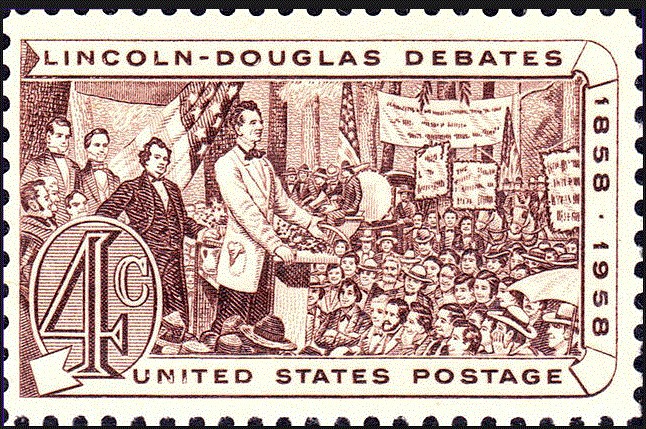
“People don’t realize, you know, the Civil War, if you think about it, why? People don’t ask that question, but why was there the Civil War? Why could that one not have been worked out?
--- Donald Trump
Donald Trump’s recent remarks on Andrew Jackson and the Civil War displayed once again two of his worst traits: his bottomless ignorance of the country he was elected to lead, and his narcissistic fantasy that a deal saves everything. Was there a bargain to be made? Stephen A. Douglas was all for making deals, and Abraham Lincoln proposed assurances to the South. But the art of the deal was not going to prevent the Civil War.
It’s unlikely that Trump is going to sit down and read through the Lincoln-Douglas debates but if he did he’d find Senator Douglas full of suggestions. His Kansas-Nebraska Act had been, he wished, a deal to forestall rising conflict over slavery. Kansas and Nebraska could follow the doctrine of “popular sovereignty” to determine their own domestic institutions; something for the South. Neither territory would be likely to accept slavery; something for the North. America could then go about expanding to the west and down to Latin America, with enough to go around for everyone. Douglas proclaimed that he cared not whether or not territories voted slavery up or down. He thought it just fine that Illinois prohibited slavery and Mississippi legalized it. That was the business of the respective states. Douglas was a man you could make a deal with.
So was Lincoln – to a point. Lincoln was willing to recognize slavery where it existed under the Constitution but he was not willing to tolerate its expansion. He argued that the Founders had accepted slavery as a necessity with the understanding that it would die of its own weight in due time. The public mind since the Founding had always been in the belief that slavery was on the course of ultimate extinction. Still, Lincoln assured the South, he would do nothing to touch slavery where it already existed. Yet he proclaimed slavery to be a moral evil and its extension a principle on which he could not compromise. In his Speech at Cooper Union in 1859, Lincoln recognized that the South would only tolerate the Republican Party on certain grounds: “This, and this only: cease to call slavery wrong, and join them in calling it right.” This Lincoln could not do.
Lincoln was not done in offering a deal to the South. In his First Inaugural, he reiterated his promise not to touch slavery where it already existed. He offered to promote a workable version of the Fugitive Slave Law. He remarked favorably upon a proposed constitutional amendment which would permanently fix the legality of slavery where it already existed. The offers were insufficient to the South.
The art of the deal failed to prevent the Civil War which, as Lincoln feared, did “degenerate into a violent and remorseless revolutionary struggle.” Our current president speculates that Jackson might have prevented it: “He was a very tough person, but he had a big heart. He was really angry that he saw what was happening with regard to the Civil War; he said, ‘There’s no reason for this.’” This childish hopefulness ignores what Lincoln explored in his Second Inaugural as the war continued:
Yet, if God wills that it continue until all the wealth piled by the bondsman's two hundred and fifty years of unrequited toil shall be sunk, and until every drop of blood drawn with the lash shall be paid by another drawn with the sword, as was said three thousand years ago, so still it must be said "the judgments of the Lord are true and righteous altogether."

